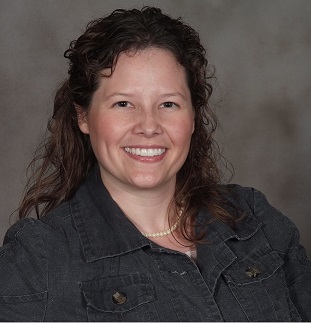
By Beth Browning, M.A., CCC-SLP
It’s time to take a test. Answer these questions:
- Which planet is sixth from the sun, is very big, spins fast but moves around the sun slowly, and has large rings?
- What do we call the time between 1760-1840 when life was changed by how things were made?
- Name a type of housing that Native Americans used.
The answers to these referential questions are Saturn, Industrial Revolution, and Teepee. Did you get them right?
Imagine you are a Person Who Uses AAC (PWUAAC). Would you be able to answer those referential questions with the words available in your device? Or would someone have to spend time programming those words into your device and teaching you where to find them before you could answer? Do you think taking the time to program and teach words like Saturn, Industrial Revolution, and Teepee is a good use of time? Are they words you will use over and over again all throughout your life?
Now for a different kind of test. Answer these questions: - Tell what you know about satellites. - Describe natural resources. - Contrast an author with an illustrator.
The answers to descriptive questions like these will contain a lot of core vocabulary such as “something little goes around something big” (satellite) or “things that come from water or earth” (natural resources) or “person who writes and person who makes pictures” (author vs illustrator). Hopefully, these core words are already programmed into your device, you’re already using them in other contexts throughout your day, and they are words that you’ll continue to use throughout your life. For these reasons, it is a much better use of everyone’s time to implement a Descriptive Teaching Model!
There is a misconception that one-word responses are easier for PWUAAC – but that’s not true if the key words must first be identified in the lesson, then programmed into the device, then taught to the student! Who has time for all of that? Who is responsible for making sure these words are available in the device? Is it worthwhile to have hundreds of “temporary” words programmed when they are not likely to ever be used again? No! Therein lies the problem with the Referential Teaching Model.
Descriptive Teaching allows communication partners (teachers, para-professionals, parents, therapists) to model core language while teaching content-specific vocabulary. The idea is that we use core words to define and describe the key vocabulary in the lesson. Here are some examples:
- Plot – story about
- Setting – where
- Conflict – problem in story
- Orbit – to go around something in a circle
- Gravity – the Earth pulls things to itself
- Tide – water goes up and down
- Fuel – makes things go/work/run
- Economy – the way money is made and used by people
Is there a time when curriculum words should be added to a communication device? Sure! Certain academic vocabulary will be used frequently throughout a person’s schooling (i.e. author, angle, president). Words like these will be used over and over again throughout a person’s life and would make sense to program into the device.
What if teachers still want to assess whether or not a student knows the name of a concept? Well, there are several alternatives to programming curriculum words into the device such as spelling, true/false, multiple choice, and post-it notes.
Here are three fun resources for boosting your use of descriptive teaching:
Watch “The Language Stealers”video
Try describing a word with The Upgoer5 Text Editor. If you use a word that is not included in the 1,000 most frequently used words, it will flag it. You can then try to use different core words to describe that one until you have no red flags!
Check out the Expanding Expression Tool for a multi-sensory approach to improve oral and written language skills through defining & describing, making associations, comparing & contrasting, and categorizing.
You must be logged in to post.
Stories and Strategies fo...










